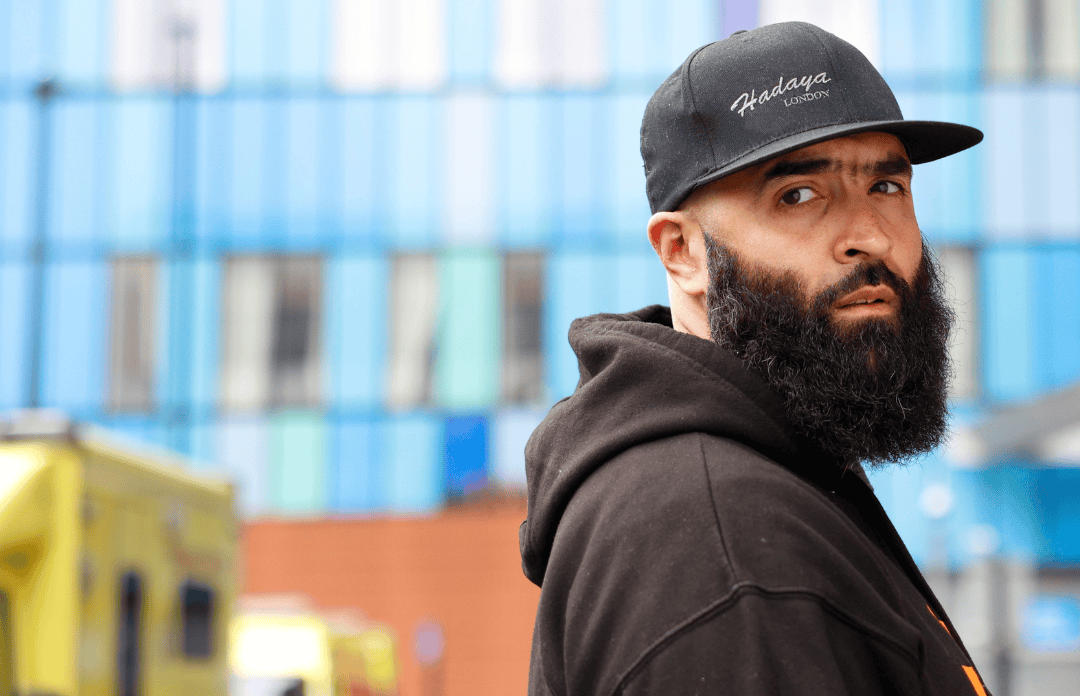Work in hospitals and custody suites
We work directly in hospitals and police custody suites to provide support for young people involved in or at risk of serious violence and criminal justice involvement. The is preventative work focussing on addressing underlying issues and helping young people access positive opportunities.
Work in hospitals
Admission to hospitals because of violence is an extremely sad fact of life for many children and young people today. However, this traumatic event also provides a potential opportunity to intervene with the young person and reduce their risk of future harm.
Our hospital-based violence reduction Caseworkers provide intensive support to help young people emotionally and practically both in hospital and in the community post-discharge
The aim of this work is to reduce future violence and prevent young people from returning to situations which expose them to risks.
Hospitals can be a very daunting environment for a young person and many will struggle to open up to clinical staff. This is where our Caseworkers come in as individuals with lived experience and a real understanding of the situations the young people are going through.
They build trusted relationships, helping them to overcome trauma, encouraging them to share the circumstances which put them in hospital and the risks they face once they leave. Our Caseworkers provide intensive, one-to-one support to address each risk factor and help the young person engage with positive activities which will keep them safe and diverted away from harm.

We could not do this complex work in isolation. Our teams work closely alongside clinical staff at the hospital alongside other agencies to share knowledge, ensuring the service is collaborative and comprehensive.
This work has been shown to be effective in reducing violence. Our work in the Royal London Hospital saw re-admission rates reduce to 7% against a national average of 40% for this cohort.

Alongside injuries from weapons, the teams also work with children and young people who are experiencing mental health issues and sexual assaults. We work in both A&E departments and Major Trauma Centres. Within A&E, our teams tend to see less extreme cases where the risk of escalation can be prevented. The young people we support in Major Trauma Centres have experienced more serious injuries and tend to be more entrenched, requiring highly intensive support.
We currently provide services in hospitals in London, the West Midlands and Bedfordshire funded through local Violence Reduction Partnerships and other sources of funding.
We are deeply committed to growing this area of our work to support a public health approach to tackling violence and reduce the number of young people whose lives are tragically cut short by it.
Work in custody suites
Arrest represents an opportunity to reach a young person and help them steer their life back on track.
Our Caseworkers make contact with young people who are in police custody and provide intensive support to divert them away from any future involvement with the criminal justice system. Typically, this involves helping young people access opportunities around education, employment and training and addressing any underlying issues around mental health, substance use and poverty.
New hospital work tackles violent crime in the Midlands
A new project helping young people admitted to two hospitals in Coventry and Wolverhampton will help address violent crime and enable perpetrators and victims to get the help they need to turn their backs on serious violence.
A lifeline for young people at The Royal London Hospital
Antonia and Roisin – our two Royal London Hospital-based SOS Caseworkers – have been exceptionally busy over the past few months. They help young people who have been admitted to the hospital’s Major Trauma Centre as victims of serious youth violence.
Anton's story
When Sonya, our caseworker Royal London Hospital Trauma Caseworker, first met 23 year old Anton he had been the innocent victim of a drive by shooting which had left him blinded. Although he had not been the intended target, he was friends with the person who was and this meant he was unable to return to his home area.
Little steps make all the difference.
There are short stories, then there’s life changing stories. Read our new Impact Series, short stories from real life impact.